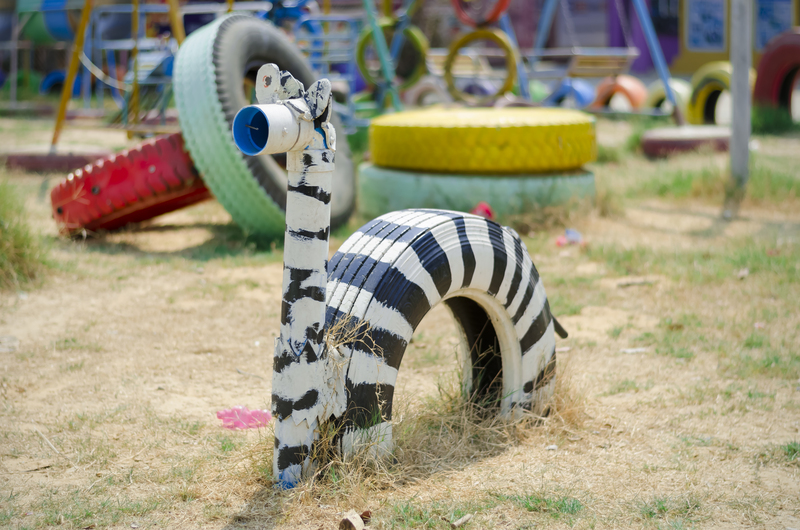Nurturing Green Behaviors through School Recycling
Building a sustainable future begins with fostering eco-friendly attitudes and habits in our youngest generation. Schools play a pivotal role in shaping the values, behaviors, and knowledge of children, and one powerful way to do so is through comprehensive school recycling programs. This in-depth article explores how nurturing green behaviors through school recycling not only benefits the environment, but also cultivates lifelong environmental stewardship in students.
Why School Recycling Programs Matter
Several studies show that behaviors learned early tend to stick with individuals throughout their lives. When it comes to sustainability and waste management, schools serve as microcosms where children practice green behaviors daily. Introducing recycling at schools helps instill waste separation, resource conservation, and environmental responsibility from the ground up.
- Reduces waste sent to landfills and prevents pollution
- Conserves natural resources such as paper, plastic, and metals
- Decreases energy consumption through resource circularity
- Encourages community participation in environmental initiatives
School-based recycling programs are not just about handling waste; they're about nurturing green mindsets that can transform communities for generations.

The Foundations of Nurturing Green Habits
1. Education as the Cornerstone
Education is the linchpin of fostering environmentally friendly behaviors through recycling. Curriculum integration is essential: recycling principles can be taught within science, geography, social studies, and even art classes. When students learn why recycling matters--such as the impact of plastic pollution and the importance of resource conservation--they're more likely to adopt these practices willingly.
- Interactive lessons: Hands-on activities, such as sorting waste or creative recycling projects, make learning engaging and memorable.
- Environmental campaigns: Assemblies, poster contests, and themed recycling weeks keep the momentum alive, reinforcing the importance of sustainability in daily actions.
2. Setting Up Effective School Recycling Systems
The success of nurturing green habits through school recycling relies on seamless infrastructure and clear processes. Here's what's needed:
- Accessible recycling bins: Place color-coded bins for paper, plastics, metals, and compostables throughout the campus, particularly in classrooms, cafeterias, and common areas.
- Clear labeling and instructions: Use big, bold signage with pictures and simple words to overcome literacy and language barriers.
- Regular collection and monitoring: Assign dedicated staff or, better yet, a student-led "Green Team" to monitor bin usage and educate peers on proper sorting.
This practical approach creates a continuous, hands-on learning experience, embedding recycling habits in students from an early age.
3. Involving the School Community
Inspiring green behaviors through recycling at school extends beyond students; teachers, custodial staff, administration, and even parents need to participate:
- Staff training: Conduct regular workshops to ensure faculty and staff understand the school's recycling goals and procedures.
- Parent engagement: Host informational sessions and share tips for home recycling, making green habits a family effort.
- Community partnerships: Work with local recycling centers, municipals, and environmental groups to support school recycling initiatives.
A whole-school approach is essential for true culture change and environmental leadership.
Innovative School Recycling Program Ideas
Green Team Leadership
Establishing student-led "Green Teams" or "Eco Clubs" empowers students to be stewards of sustainability. These teams can:
- Lead class presentations and workshops
- Monitor recycling bins and provide feedback
- Organize recycling competitions across grades
- Advocate for greener school policy
Student leadership fosters pride and accountability, making recycling a valued aspect of school identity.
Recycling Art Projects
Encourage creativity by turning recyclable materials into art installations or crafts. Not only does this reduce waste, but it also provides powerful visual reminders of recycling's potential to transform "trash" into treasure.
Environmental Education Days
Host thematic events, such as "Earth Day" or "Waste-Free Week," focusing on recycling and environmental protection through assemblies, workshops, and challenges.
Recycling Audits and Data Tracking
Engage students in measuring waste production, recycling rates, and contamination levels. Share the results school-wide to highlight progress and areas for improvement, reinforcing the value of every individual's effort.
The Lasting Impact of School Recycling Programs
Developing Responsible Citizens
Students who consistently practice recycling and understand its benefits are far more likely to embrace other green behaviors, such as conserving water, reducing energy use, and supporting environmental policies. The school environment is uniquely positioned to normalize these habits, ensuring they endure into adulthood.
Ripple Effects: Families and Communities
When children become recycling champions, the influence often spreads to their families. Children share what they've learned with parents and siblings, inspiring at-home recycling and other eco-friendly changes. Over time, nurturing green practices through school recycling can transform whole communities, contributing to cleaner cities and healthier local environments.
Supporting Circular Economy
Schools that promote responsible consumption, recycling, and even upcycling help lay the groundwork for a society that values the circular economy. By minimizing waste and maximizing the reuse of resources, individuals support a more sustainable and resilient future for all.
Challenges in School Recycling Programs
Contamination of Recyclables
Improper sorting or placing non-recyclables in recycling bins ("wish-cycling") can undermine even the most robust systems. Ongoing education, clear signage, and frequent communication are key to reducing recycling contamination.
Funding and Infrastructure
Some schools may lack the budget for appropriate bins, signage, and collection services. Grants, community sponsorships, and partnerships with local governments or businesses can help fill these gaps.
Changing Behavior Takes Time
Building green habits is a long-term process. Consistency, patience, and the celebration of small wins are important for motivation and progress.
Enhancing School Recycling Efforts: Best Practices
- Integrate recycling education into the curriculum: Make waste management and resource conservation part of science, social studies, and health units.
- Promote student ownership: Involve students in designing posters, giving presentations, or running school recycling clubs.
- Connect with local initiatives: Invite recycling experts, arrange field trips to recycling facilities, or partner with municipal programs for expanded impact.
- Celebrate achievements: Recognize classes or students that excel in recycling, and share stories through newsletters or school assemblies.
- Measure progress: Conduct regular audits and set targets, such as reducing landfill waste by a certain percentage each year.
- Encourage zero-waste events: Challenge students to organize events with minimal waste by using reusable or compostable materials.
Case Studies: School Recycling Success Stories
Eco-School Revolution at Lincoln Elementary
Lincoln Elementary School implemented a comprehensive recycling and composting program, supported by a dynamic student-led Green Team. Through classroom presentations, engaging competitions, and art projects using recyclables, students reduced lunchroom waste by 40% in just one year. The school also partnered with the local recycling center for monthly workshops, expanding the program's impact into the community.
The Zero Waste Journey of Oakridge High
Oakridge High School's journey began with a simple paper recycling initiative, which soon evolved into a zero-waste goal. By incorporating sustainability in science and business classes, and involving parents in weekend recycling drives, Oakridge achieved a 60% diversion rate from landfill. Students led peer-to-peer education, sharing successes across social media and local news outlets, inspiring other schools to follow suit.

The Future of Nurturing Green Behaviors Through School Recycling
The environmental challenges facing today's world demand action on all fronts--especially in education. Schools bear a responsibility and opportunity to nurture responsible, environmentally literate citizens who will lead the way toward a greener, more sustainable future. Through effective school recycling initiatives, schools can set the stage for a lifetime of green behaviors, far-reaching community change, and a healthier planet for all.
The Road Ahead: How to Get Involved
- Educators: Start or upgrade your school's recycling program. Seek resources from environmental organizations for curriculum ideas and funding opportunities.
- Parents: Volunteer for recycling events and encourage your child's school to prioritize green practices. Model eco-friendly behaviors at home.
- Students: Join your school's green team or start one. Share your knowledge with peers and family members.
- Communities: Support local schools through sponsorships, recycling pickups, or educational workshops.
Together, we can nurture a new generation of green leaders--one bottle, can, and scrap at a time.
Conclusion
Nurturing green behaviors through school recycling is more than just placing bins around the building--it's about creating a culture of sustainability. It involves educational efforts, community collaboration, and a commitment to long-term behavioral change. Schools that champion recycling and environmental responsibility lay the foundation for a greener, brighter future, inspiring students to become the environmental stewards our world needs.
Whether you're an educator, parent, or student, remember: fostering eco-friendly habits starts with simple actions. Let's work together to make school recycling the norm, paving the way for a sustainable world for generations to come.